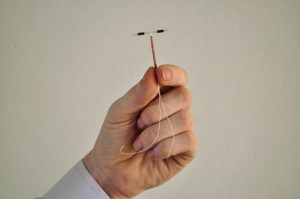Millions of adults around the World live with kidney diseases and most of them are not aware of it. Signs of kidney disease can appear at any age and individuals need to identify them. But, people tend to attribute them to other health conditions and avoid them at the initial stages. Also, the symptoms of kidney failure are experienced by most of the patients until the very last stage. Therefore, according to health statistics, only 10% of people with chronic kidney disease are concerned about having it.
To ensure you remain healthy, getting some essential medical tests done regularly is a must.
What are the signs of kidney disease?
If you are looking for the signs of kidney trouble, here is a list for your help:
- Extreme tiredness, loss of energy, and trouble concentrating.
When your kidney function decreases, your body tends to build up toxins and impurities in the blood. This results in tiredness, weakness, and trouble concentrating. Another complication for such problems is anaemia.
- Insomnia or trouble sleeping
Toxins in the blood are the reason for trouble sleeping. They stay back as your kidney fails to filter them and eliminate them through urine. People with chronic kidney disease suffer from sleep apnea.
- Itchy skin with dryness
When your kidney is not properly functioning, urea gets accumulated in your body and results in itchy and dry scaly skin. This may also be a sign of mineral and bone disease that later accompanies advanced kidney problems. Then, your kidneys are unable to maintain a proper balance of minerals and nutrients in your blood.
- Frequent urination
Have you ever felt that your urge for urination is increasing at night? It may be a strong sign of kidney disease. Also, see if your urine is bubbly, frothy, or red. These are a sign of excess filtration of protein which is an outcome of a damaged kidney.
- Blood in the urine.
If the kidney filtration process is damaged, blood cells leak out into your urine. This is a signal of kidney disease. Also, blood in the urine can be a sign of tumours and infection or kidney stones.
- Foamy urine
If you ever realized that there is an excessive bubble formation in the urine, it’s high time to meet the best kidney doctors. Foamy urine is a signal of excessive protein elimination from the body with urine.
- Eyes are persistently puffy
When your kidney filtration processes are affected, a common protein known as albumin leaks into the urine rather than staying back in your body. A large amount of protein Leaking from the body results in puffiness around your eyes.
- Swollen feet and ankles
When a kidney’s functioning is damaged, the removal of excess sodium from the body becomes difficult. It results in the accumulation of excess sodium in the body which leads to water retention and fluid accumulation in your feet.
- Loss of appetite
One of the most common symptoms of kidney disease is loss of appetite. The reason is the accumulation of excess toxins in the blood due to the loss of the proper filtration process.
- Muscle cramps
Impaired kidney function results in electrolyte imbalances. For example, low calcium levels or low levels of phosphorus result in muscle cramping. Electrolytes like potassium, magnesium, and calcium result in aches if not balanced properly in the body.
- Shortness of breath
Kidney disease fails in removing excess water from the body. This may result in fluid accumulation in the lungs causing shortness of breath.
If you see any of these signs you have kidney problems. You are at high risk if there is a family history of renal failure, diabetes, or high blood pressure. Adults above 60 years, must have a thorough kidney checkup annually.
Have you ever heard of kidney failure?
If your kidney function drops below 15% of its normal functions, you are detected to have acute kidney failure. The symptoms that you may find are the build-up of waste products and excess water stored in your body.
This condition has three treatment options, hemodialysis, peritoneal dialysis, and kidney transplant.
The symptoms of renal failure are more serious than nominal kidney problems. This includes:
- Decrease in urine output.
- Fluid retention in the body causes swelling of the legs, ankles, and feet.
- Fatigue.
- Confusion.
- Nausea.
- Weakness.
- Shortness of breath.
- Irregular heartbeat.
- Chest pain or pressure.
- In severe cases, one can suffer from seizures or coma.
If you see any of the signs of kidney failure, it’s time to visit a nephrologist or an expert in this field. You need to stick to a treatment schedule. Keep asking your healthcare provider to review your medicines and take them in time as prescribed. Always stay active and enjoy taking a long walk or doing some other physical activities. You must also consult a dietitian to develop a good eating plan that supports your health. Finally, stay in touch with your friends and family to keep your mood swing in control and feel better.



